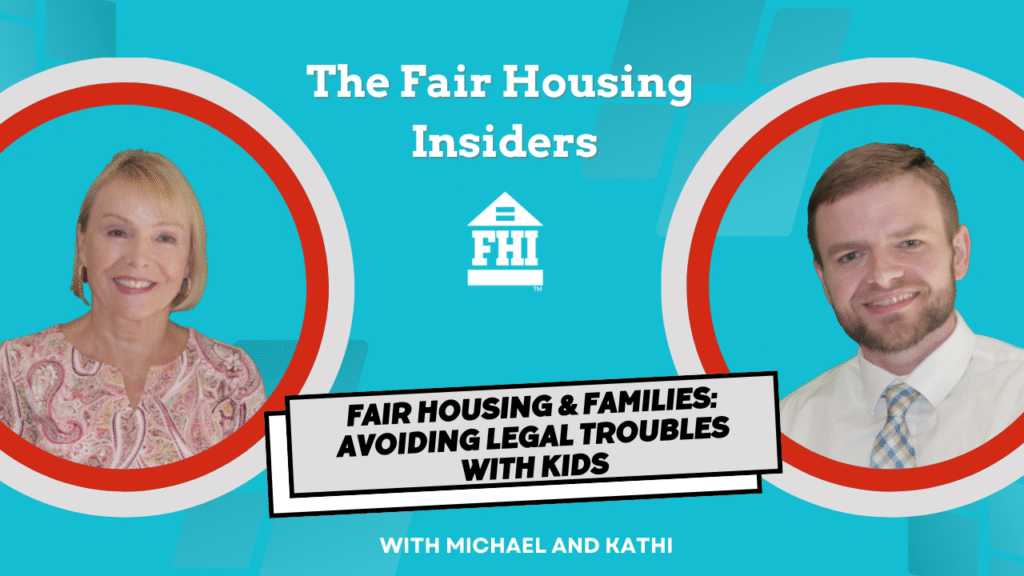Children are often at the center of property management challenges, particularly when they are unsupervised or disruptive in shared spaces. While it may be tempting to create or enforce strict rules aimed at resolving these issues quickly, housing providers must be careful. Under the Fair Housing Act, familial status is a protected category. This means that households with children cannot be treated less favorably or targeted through policies that appear to single them out.

Table of Contents
Understanding How Rules Can Violate the Fair Housing Act
Familial status protections require property managers to avoid creating rules that specifically name or restrict children. When rules are worded in a way that directly refers to children—such as stating that “children may not ride bikes in the parking lot” or “children must not run in the hallways”—they risk being viewed as discriminatory.
Instead, policies must be written to apply to everyone in the community. A neutral rule that addresses the behavior without referencing age is far more compliant and enforceable. This approach ensures that expectations are clearly set for all residents while also respecting the rights of families.
Addressing Individual Behavioral Issues
The best way to address issues involving children is to follow the same process that would be used for any resident. If behavior violates the community rules, management should begin with a formal written warning that outlines the incident, the individuals involved, and why the behavior is unacceptable. Continued violations may lead to lease enforcement measures.
It’s important to document these interactions thoroughly, especially when familial status is a factor. Records should include witness statements, incident reports, and any communication with residents. Proper documentation can be a strong defense if a fair housing complaint is later filed.
Demonstrating Consistency and Inclusion
Fair and consistent enforcement is key to avoiding claims of discrimination. If adults are allowed to engage in certain behaviors without penalty, but children are penalized for similar actions, this inconsistency may form the basis of a fair housing complaint. Management should also take care to demonstrate through its advertising, leasing practices, and resident interactions that families with children are welcomed and valued members of the community.
Being Proactive Through Fair Housing Training
Planning ahead is far more effective than reacting under pressure. Property management teams should ensure they have clearly written, neutrally worded rules and a consistent enforcement policy that applies to all residents. Ongoing fair housing training helps staff stay up to date on legal requirements and equips them to handle sensitive situations with confidence and professionalism.
Children can present behavioral challenges in multifamily housing, but that doesn’t give property managers a license to impose sweeping restrictions or act out of frustration. With the right policies, consistent enforcement, and a solid understanding of fair housing protections, communities can be both well-managed and welcoming to families. Staying proactive and trained ensures that your property remains compliant while maintaining a safe and respectful environment for everyone.
You may also like:
- Preventing Staff Harassment in Property Management
- Fair Housing Liability: When Does Resident-on-Resident Harassment Trigger Management’s Duty to Act?
- Retaliation vs. Rule Enforcement: Navigating the Fair Housing Fine Line
- Top 3 Fair Housing Risks for Property Managers in 2026
- A Year of Upheaval: How 2025 Impacted Fair Housing Operations
